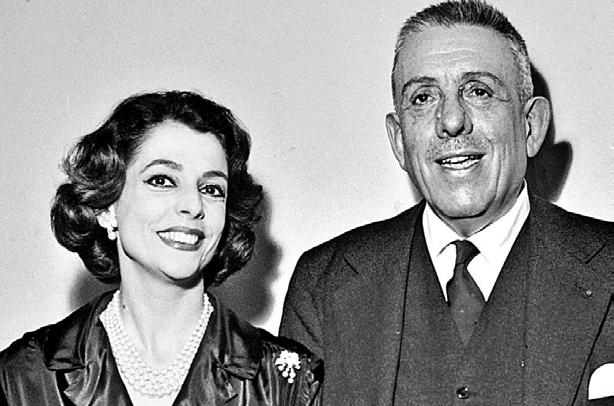
1 minute read
Opera Allsorts
Opera AllsortsLA VOIX HUMAINE
A mix of tidbits and tales about Poulenc's emotional monodrama
ONE ACT WITH DROPPED CALLS
The opera La Voix humaine was originally based on a single act play by Jean Cocteau, completed in 1928 and originally premiered in 1930. Cocteau’s intent was to create a drama refined to the most basic elements. The play lacks the act breaks that typically create story structure. Instead, the structure is only punctuated by the intermittent dropped connections in the sole character’s phone call.
A CALLAS CONNECTION
Composer Francis Poulenc adapted Cocteau’s play into an opera in 1958 after the success of his second opera Dialogues des Carmélites (1957). Legendary soprano Maria Callas was initially suggested to him for the role of Elle, but Poulenc had another singer in mind.

FRANCIS POULENC AND JEAN COCTEAU
POULENC'S MUSE
Poulenc felt a deep affinity with the character’s tumultuous story as he struggled with his own addiction to antidepressants, tranquilizers, and sleeping pills. Having worked with soprano Denise Duval on his previous opera, Poulenc was aware of Duval’s troubled love life and was determined to have her originate the role of Elle in La Voix humaine.

DENISE DUVAL AS ELLE IN LA VOIX HUMAINE, AT TEATRO COLÓN, 1960
THREE'S COMPANY
Poulenc, Duval, and Cocteau worked together on the premiere of the opera. Poulenc composed the part of Elle specifically for Duval and considered her a co-composer of the role. Cocteau took on the roles of director and designer of costumes and stage décor. He customized the costumes and lighting specifically to suit Duval.
DENISE DUVAL AND FRANCIS POULENC IN PARIS

JEAN COCTEAU, 1928





